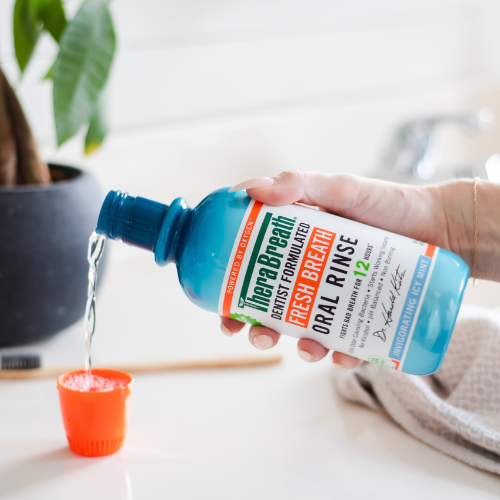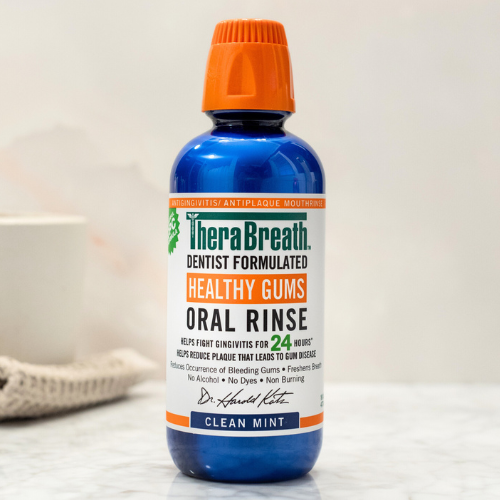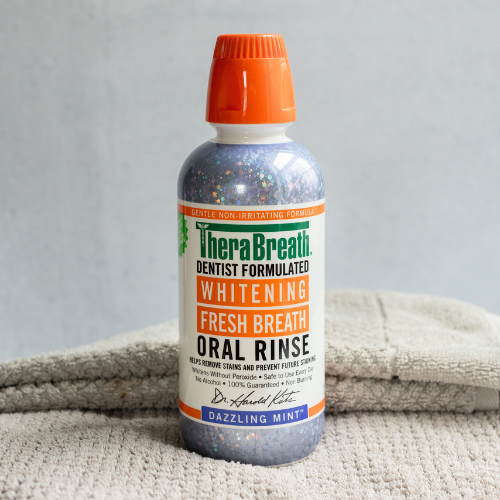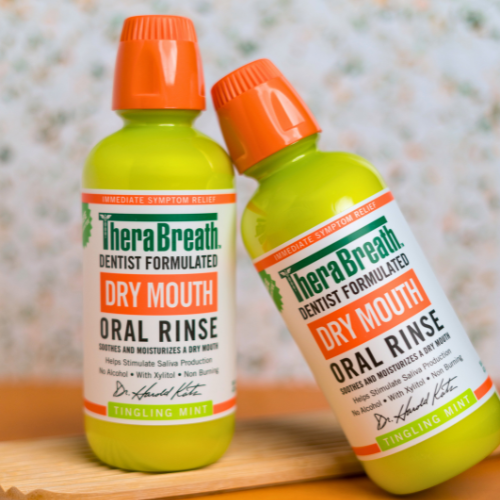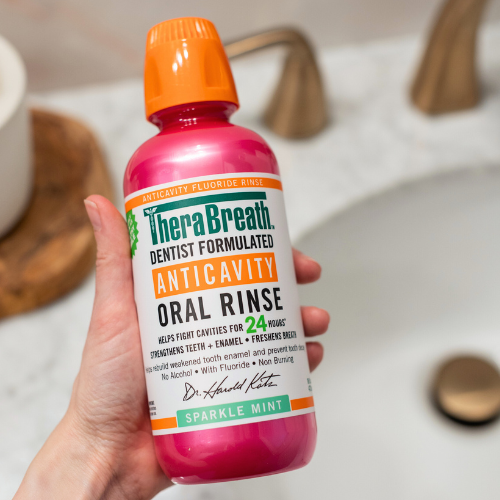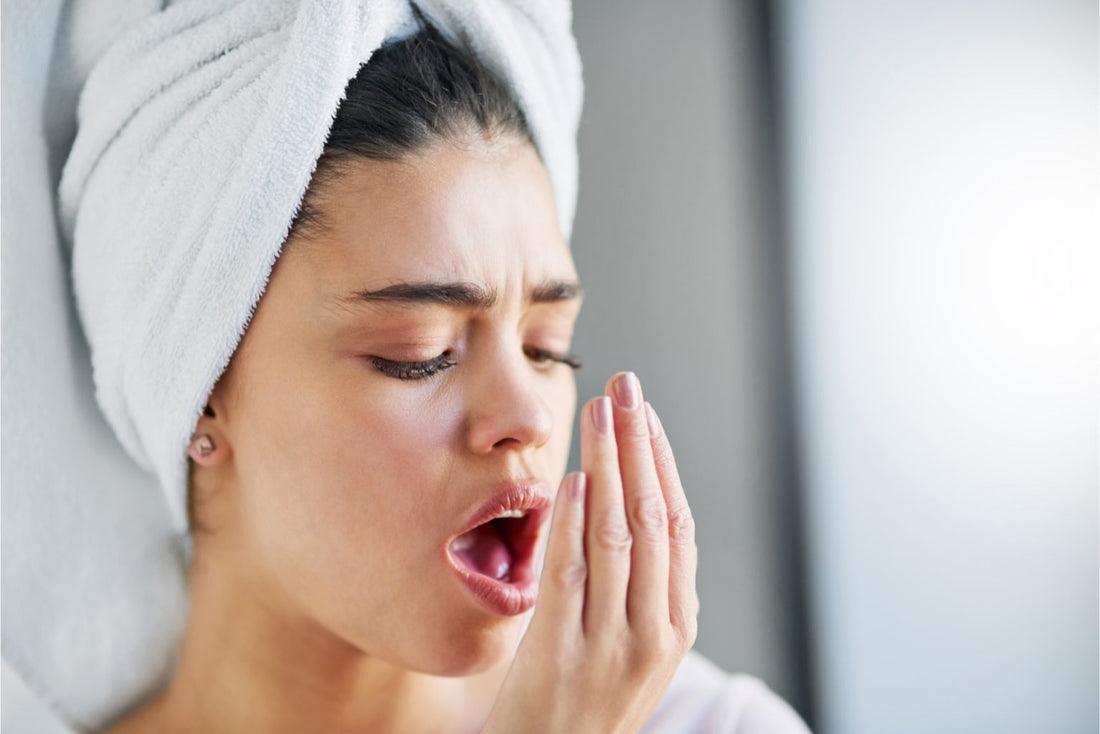
Bad Breath Detector
Share
People who think they may have halitosis can quickly test their breath with a digital bad breath detector that contains sensors capable of judging the intensity of volatile sulfur compounds existing in the mouth. Volatile sulfur compounds (VSCs) are emitted by anaerobic bacteria feeding on mouth debris (food particles, dead tissue and mucus) and contain foul, sulfurous odors that are responsible for halitosis.
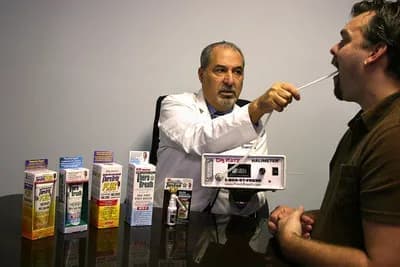
When a person blows into a small opening at one end of a breath detector, it will display the results of a breath test within several seconds on an LCD screen. Results range from no VSCs to moderate bad breath to intense VSC activity, indicating that halitosis is definitely present and the person should either brush their teeth, chew on flavored gum or use mouthwash before interacting with others.
However, portable bad breath detectors should not always be relied upon to provide correct analysis of someone's breath. Users have reported inconsistencies in results, as in the case of one reviewer who said the device showed that she had bad breath one minute and perfectly fresh breath the next when she did nothing to improve her breath between tests. Body chemistry, enzyme action and saliva flow change rapidly throughout the day in response to air quality, food intake and even a person's emotional state. All of these factors can negatively (or positively) influence the results of a bad breath detector.
Self-Help Ways to Detect Bad Breath
Of course, one of the best ways to determine whether bad breath is detectable is by using someone else as the "detector". Alternatively, to avoid embarrassment, a person can lick the back of his/her hand, let the saliva dry and then smell the saliva. Another way is to floss your back teeth and smell the floss. A whitish, fuzzy tongue may also indicate the presence of anaerobic bacteria and accompanying VSCs.
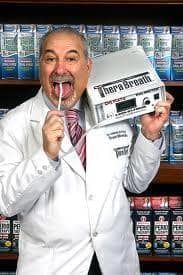
By using a clean cotton ball, wiping the coating on the tongue and then smelling it may also help determine whether halitosis exists. Scraping the back of the tongue with a clean, plastic spoon and smelling the saliva it removes can help you detect the presence of odorous breath.
Professional Diagnosis
Doctors and dentists have access to precision instruments not available for purchase at pharmacies which test for VSCs. The halimeter is a portable bad breath detector that tests for the presence of VSCs in the mouth and has also become an integral part of halitosis research and therapy. Initially developed about 20 years ago and constantly undergoing enhancements, the halimeter can detect hydrogen sulfide, methyl mercaptan, and dimethylsulfide in a patient with chronic halitosis.
Additionally, the halimeter is a sensitive device that needs to be periodically recalibrated in order to continue providing correct readings.
Dr. Katz Demonstrating Bad Breath Detector
Gas Chromatography
This device digitally measures the molecular intensity of three volatile sulfur compounds: dimethyl sulfide, hydrogen sulfide and methyl mercaptan, the worst smelling of all the VSCs. Portable gas chromatographers provide visual results using a computer interface that creates a graph to show the rate of VSCs occurring in an individual's mouth. Gas chromatography also measures body odor levels which helps in determining the presence of diseases that alter body chemistry and cause distinctly smelling perspiration and oils.
BANA Test
Frequently administered to dental patients, the BANA test detects anaerobic bacteria associated with bad breath and periodontal disease, specifically bacteroides forsythus, treponema denticola and porphyromonas gingivalis. Plaque and tongue coating samples are taken to determine whether a trypsin-like enzyme exists within these substances. If the enzyme is there, it reacts positively (i.e., turns blue) when mixed with synthetic peptide benzoyl-DL-arginine-naphthylamide (BANA), and is an indication that anaerobic bacteria is causing chronic halitosis and possible damage to teeth and gums.
BANA tests also are helpful in early detection of periodontal disease in individuals at risk for developing tooth decay and serious gum diseases. People who suffer from diabetes, acid reflux and dry mouth syndrome may benefit from taking regular BANA tests so that initiation of preventative treatment can commence.
Treatment Options When Bad Breath is Detected
One of the first things a dentist will do to reverse a chronic halitosis condition is to begin treating any oral diseases affecting the patient. In addition to creating bad breath, anaerobic bacteria directly contribute to gum and teeth destruction by coating teeth with erosive plaque and causing highly acidic conditions in the mouth.
Improving oral hygiene with regular use of non-alcoholic mouthwashes and non-abrasive toothpastes are other actions that effectively kill anaerobic bacteria and eliminate chronic bad breath. Unfortunately, the majority of name brand mouthwashes contain alcohol, which worsens dry mouth syndrome and actually stimulates bacterial growth.
Further, most toothpastes purchased in department stores and pharmacies contain a surfactant called sodium lauryl sulfate, a foaming agent used in cleaning products to give consumers the impression that the solution is "working" to perform what is was intended to do. SLS encourages anaerobic bacterial growth because it sloughs tissue from the inside of cheeks and gums, creating more mouth debris on which bacteria feed. In addition, SLS has been correlated with exacerbating canker sores.
In response to an effective treatment plan for bad breath, Dr. Harold Katz created his highly successful line of TheraBreath Oral Hygiene products. TheraBreath offers mouthwashes, toothpaste, gum and lozenges that do not contain alcohol, SLS or other caustic ingredients that contribute to bad breath.
With the ability to oxygenate and increase saliva flow due to a special ingredient called OXYD-8, TheraBreath Oral Hygiene products have been eliminating halitosis in millions of users for over ten years who also experience the additional benefits of improved self-esteem and a healthier, fresher mouth.
